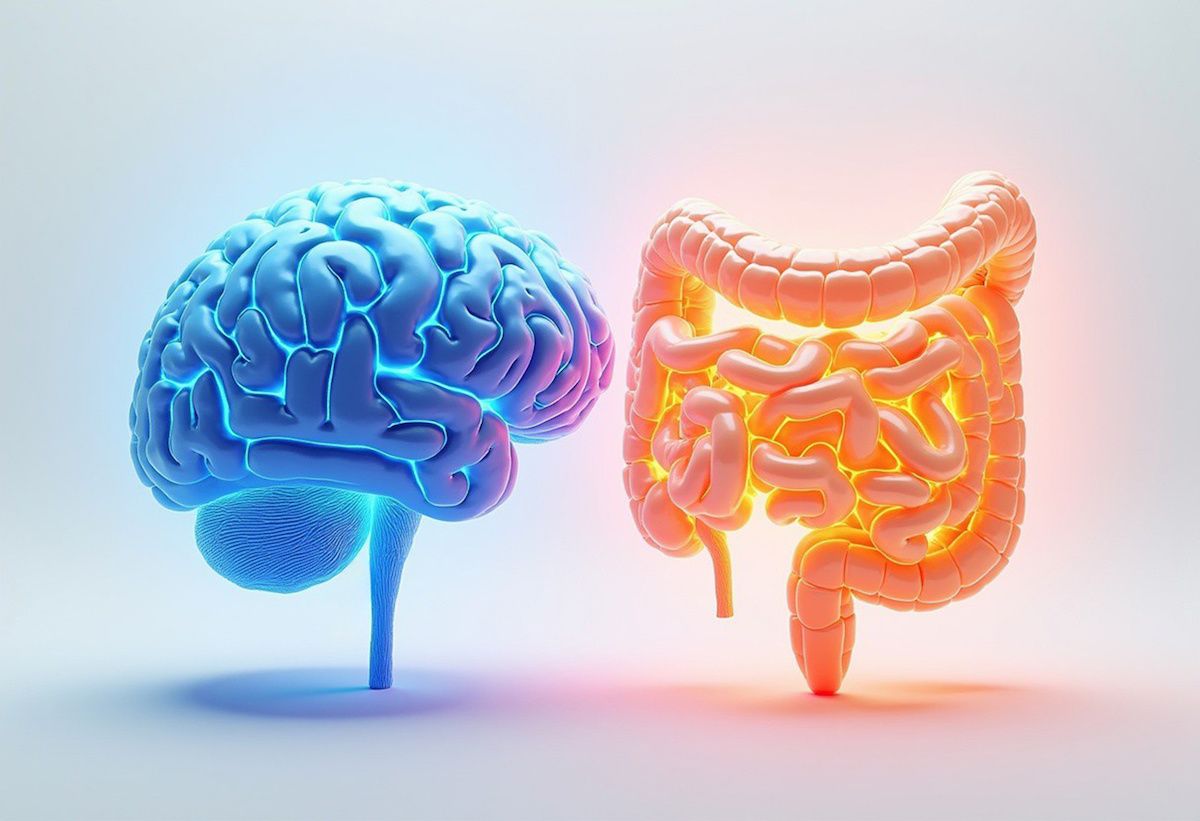- Center on Health Equity & Access
- Clinical
- Health Care Cost
- Health Care Delivery
- Insurance
- Policy
- Technology
- Value-Based Care
Understanding the Bidirectional Relationship Between Anxiety and GI, Liver Conditions
Health care providers must recognize and address the high prevalence of anxiety in gastroenterology (GI) and hepatology outpatients, as its bidirectional relationship with chronic conditions can significantly impact both physical and emotional wellbeing, according to a global review.
Due to the strong association between anxiety and gastroenterology (GI) and hepatology conditions, providers need to make careful considerations to ensure symptoms of both conditions are adequately treated, according to a global review.1
The systematic review and meta-analysis, published in Current Gastroenterology Reports, aimed to support clinicians treating patients by investigating anxiety symptom prevalence in outpatients treated at GI and hepatology facilities across factors such as physical health, anxiety type, and patient demographics.
Psychological factors, including catastrophic thinking and avoidance behaviors, can further exacerbate symptoms, while social factors like stigma and financial stress add additional burden. | Image credit: Hermann - stock.adobe.com

Previous research has often combined patients from different medical settings, making it difficult to draw specific conclusions.2 By focusing on outpatients, the authors aimed to provide clearer data to help health care providers improve screening and treatment.1
Data show that anxiety and chronic conditions have a strong bidirectional relationship.3,4 Symptoms related to chronic illnesses can contribute to anxiety due to symptoms, lifestyle limitations, and uncertainty about disease progression.3 At the same time, anxiety can worsen physical conditions through biological mechanisms such as chronic inflammation, neuroendocrine dysregulation, and heightened pain perception. Psychological factors, including catastrophic thinking and avoidance behaviors, can further exacerbate symptoms, while social factors like stigma and financial stress add additional burden.5
The gut-brain axis may also play a key role in this relationship, with growing evidence showing that some GI disorders, such as irritable bowel syndrome and inflammatory bowel disease, are associated with higher rates of anxiety.6 Similarly, patients with liver disease and chronic pancreatitis have been shown to have increased anxiety levels. Understanding these connections will be essential for providing effective care.
“There has yet to be a study estimating the overall global prevalence of anxiety in the gastroenterology and hepatology outpatient setting,” the authors stressed.1 "Having knowledge of this would be helpful in several ways – helping guide clinical practice, and promoting more personalised and comprehensive treatments, which could improve patient satisfaction with care."
A literature search was conducted across 4 databases, focusing on anxiety prevalence in medical outpatients. Eligible studies included those assessing anxiety in individuals aged 16 years and older using validated tools, excluding inpatient, emergency, and psychiatric settings.
The meta-analysis included 81 studies from 1996 to 2022, selected from 5440 records, with 28,334 participants. Most studies were cross-sectional (n = 61) analyses, and sample sizes ranged from 21 to 8924. The average age of the patients was 44.48 years, and 54.37% of the participants were female.
Geographically, most studies were conducted in Europe (n = 30) and North America (n = 22), with additional representation from Asia (n = 9), Oceania (n = 7), the Middle East (n = 7), and South America (n = 5). The majority (n = 64) were conducted in high- and middle-income countries, while 17 were based in low-income nations.
Anxiety prevalence in gastroenterology and hepatology patients varied across conditions but showed no significant difference between the 2 fields, indicating that the chronic nature of these diseases rather than their severity plays a more significant role in anxiety. Anxiety was observed in 25% of patients treated in general gastroenterology and hepatology clinics, 31.5% of patients with digestive bowel disorders, 31.6% of patients with inflammatory bowel disease, 32.2% of those with hepatitis, and 43.4% of those with gastric reflux.
Health anxiety was the most reported anxiety type, affecting 23.7% of patients, followed by generalized anxiety and specific phobias. No significant differences in anxiety rates based on sex or human development index level were observed, although further research is needed in these areas.
“Given the high prevalence of anxiety among gastroenterology and hepatology outpatients, and its significant impact on both physical and emotional wellbeing, it is therefore essential that healthcare providers recognise and address anxiety as a key component in their assessment and management of patients," the authors concluded.
References
- Storer B, Holden M, Kershaw KA, et al. Global prevalence of anxiety in gastroenterology and hepatology outpatients: a systematic review and meta-analysis. Curr Gastroenterol Rep. 2025;27(1):17. doi:10.1007/s11894-025-00963-x
- Remes O, Brayne C, Van Der Linde R, Lafortune L. A systematic review of reviews on the prevalence of anxiety disorders in adult populations. Brain Behav. 2016;6(7):e00497. doi:10.1002/brb3.497.
- Atlantis E, Fahey P, Cochrane B, Smith S. Bidirectional associations between clinically relevant depression or anxiety and COPD: a systematic review and meta-analysis. Chest. 2013;144(3):766-77. doi:10.1378/chest.12-1911
- Bobo WV, Grossardt BR, Virani S, St Sauver JL, Boyd CM, Rocca WA. Association of depression and anxiety with the accumulation of chronic conditions. JAMA Netw Open. 2022;5(5):e229817. doi:10.1001/jamanetworkopen.2022.9817
- Scott AJ, Correa AB, Bisby MA, Dear BF. Depression and anxiety trajectories in chronic disease: a systematic review and meta-analysis. Psychother Psychosom. 2023;92(4):227-42.
- Foster JA, Neufeld KAM. Gut–brain axis: how the microbiome influences anxiety and depression. Trends Neurosci. 2013;36(5):305-12.
Celiac Disease Therapy Provides Benefit for Children With GI Conditions After COVID-19
July 30th 2025Larazotide, a therapy known to treat celiac disease, shows promise as a safe treatment for multisystem inflammatory syndrome in children linked to COVID-19, enhancing recovery and symptom resolution.
Read More
Corticosteroid Premedication for Infliximab Remains Unnecessarily Common
July 8th 2025Although use of corticosteroid premedication prior to infliximab infusions is declining, it remains unnecessarily high despite limited benefit and the risk of serious adverse events from corticosteroids.
Read More
